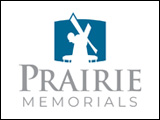Within a short time we know instinctively, whether a person is safe. We may not know why we either feel safe or unsafe, but if we have a measure of personal and psychological heath, we get a sense whether or not a person is safe. If a person is safe we are drawn to them, but if we sense they are not safe we tend to distance ourselves from them. It is important that we learn to listen to our “gut” on this.
Safe people come in all shapes and sizes as do unsafe persons. One’s occupation is often irrelevant. There are ministers that are safe and others that are unsafe, teachers that are safe and others that are not safe, police officers that are safe and others that are not safe.
Dr. Henry Cloud and Dr. John Townsend in their book Safe People outline the personality and behavioral traits safe people. Let’s review those traits quickly: 1) Safe people own their weaknesses. 2) Safe people are not rigidly religious. 3) Safe people are not defensive when approached. 4) Safe people are humble. 5) Safe people not only apologize but changing their behavior when they are wrong. 6) Safe people confront the issues instead of avoiding them. 7) Safe people talk to you without flattery. 8) Safe people earn your trust by having integrity. 9) Safe people are honest. 10) Safe people are willing and desirous of growing personally.
If we are honest with ourselves, as we read these qualities of a safe person, there are ways that we are safe and other ways that we are not so safe. What many of us do is just throw up our hands and say, “Well, this is just the way I am.” Honestly, that’s a copout. It may very well be who you or I am, but if our response is, “Well, that’s just the way I am” we have demonstrated in that simple statement that we are not safe people.
When was the last time we admitted to someone a personal weakness? When was the last time we found ourselves being critical, judgmental, and rigid using some religious cover to excuse it? When was the last time we were instantly defensive when someone tried to talk to us about an issue?
Are we humble, having an honest assessment of both our strength and weaknesses? When we apologize do we really work to change our attitude and behavior or are we just trying to smooth things over and get someone off our back? Are we willing to confront issues that arise or do we do everything we can to avoid them? Do we use flattery to manipulate people? Do we expect people to trust us without having done the hard work of earning it? Are we honest, even if it is hard to be honest? Are we growing personally or are we satisfied just to stay the same?
These are hard questions. We need to ask them of ourselves. All too often we turn them on others, having expectations of others but having no such expectations of ourselves. My wife, a therapist that helps people deals with relational problems, told me once that if most of her clients had one safe person they could talk to, they wouldn’t need her services. Fact is, few people are absolutely safe and few are absolutely unsafe, most of us are a mixture of both but too often not safe enough to welcome others into our lives without the fear of being misunderstood, dismissed, judged or deflected.
One of the things my job pushes me towards is growing in the areas that would make me a safer and safer person. If you are the praying and are inclines to pray for people like myself, this is what I ask. That God would work in my life to move me closer and closer to being a safe person.
Chaplain's Corner was written by Bethesda Place now retired chaplain Larry Hirst. The views and opinions expressed in this blog are solely that of the writer and do not represent the views or opinions of people, institutions or organizations that the writer may have been associated with professionally.



